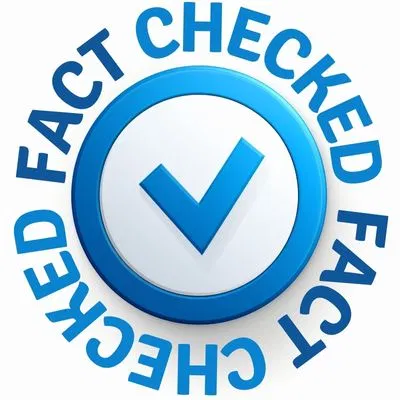How to Take Your Marketplace SEO to the Next Level

Published August 8, 2023
Search engine optimization (SEO) is the art and science of refining a website’s structure and content to gain more organic traffic from search engines like Google. It is one of the most powerful tools we have in digital marketing today, so naturally, marketers and website owners would want to capitalize on this gold mine. But how exactly does SEO impact multi-vendor websites or marketplaces?
Marketplaces like Amazon are an excellent platform for vendors and customers to buy and sell their products. However, the challenging competition level is the one major drawback of operating in a marketplace. But before we discuss the technical side of marketplace SEO, it’s essential that we clearly define what a marketplace is and how it operates.
Marketplace: An Overview
A multi-vendor website or marketplace is a platform where vendors come together and register to sell their products or services. Noteworthy examples of these include Amazon and Alibaba.
And while you may compare a marketplace to an eCommerce website, they’re not the same.
An eCommerce website typically operates under one brand or company only, so its product assortment is much more limited than a marketplace’s. Multi-vendor websites connect many vendors. It sometimes reaches the thousands and houses various products and services.
Search Engine Basics
SEO means increasing your website’s visibility in search engine results pages (SERPs). The higher your website ranks, the more organic traffic you can pull to your site. Search engines exist to answer people’s queries. They’re there to discover and organize the vast content on the internet that they believe is relevant to a user’s search query.
Crawling, Indexing, and Ranking
Search engines follow a basic three-step process in coming up with results for a search query:
1. Crawling
The first step in search engine operation is crawling. Search engines use specialized software known as “crawlers” or “spiders” to navigate the vast expanse of the internet. These crawlers follow links and collect information from one web page to another. The process is akin to a digital spiderweb, with crawlers continuously exploring new and existing web pages.
2. Indexing
The next step is indexing once the crawlers collect data from various web pages. Indexing organizes and stores the gathered information in massive databases known as search engine indexes. Once a page is in the index, it can appear in the SERP.
3. Ranking
The final step is ranking. When a user enters a search query, the search engine’s algorithms come into play. These algorithms analyze the indexed data to determine the most relevant and useful results for the given query. The links that best address the search intent appear first, with results ranked by relevance.
Understanding how search engines work is essential for SEO for marketplace and anyone looking to improve their online visibility. By comprehending the processes of crawling, indexing, and ranking, businesses can optimize their websites to align with search engine algorithms better.
SEO: Technical, On-site, and Off-site
SEO is the process that ensures your site gets crawled, indexed, and hopefully ranked, too. It does this by referring to the three main pillars of SEO, which are:
Technical SEO
Technical SEO refers to optimizing your website for the crawling and indexing phase of the process. With it, you ensure that search engines can freely access, crawl, interpret, and index your website. The term “technical” indicates that it has nothing to do with the website’s content, but rather, this pillar focuses on the infrastructure of a website.
On-site SEO
On-site SEO means optimizing each web page to make it rank higher in search engines. This is the practice of optimizing elements on a website, including content, keyword optimization, and HTML source code.
Off-site SEO
Off-site SEO refers to the actions taken outside your website that make it rank higher in SERPs. This involves increasing a site’s reputation and authority by getting backlinks from other sites linking to yours. Earning high-quality backlinks from authoritative and relevant websites is one of the most crucial factors in off-site SEO. Backlinks indicate to search engines that your content is valuable and trustworthy.
Ways to Improve Marketplace SEO

Marketplace website owners are in quite a unique position. Having a good website is a must. On the one hand, they must attract clients or vendors to register on their platform. But on the other, they should also attract customers to purchase their vendors’ products.
SEO also works differently on marketplace sites, mainly due to the dynamic nature of creating webpages. Because of that, marketplace sites require a multi-faceted approach to meet this unique need. This makes technical SEO all the more relevant. It can make or break an SEO marketplace, especially where navigation and internal linking are heavily involved.
Perform a Site Audit
Performing an overall site audit gives you a picture of how your website is currently performing. Some of the key measurables in a site audit are the following:
- Loading speed
- Crawlability
- Content issues
- Meta tags
- HTTPS security protocols
- Internal linking
- JS and CSS errors
- AMP implementation
You can use site audit tools from SEMRush and Ahrefs to determine your website’s health and which fields need the most improvement. Some free tools you can use are:
- Google Analytics
- Google Search Console
- Google PageSpeed Insights
- Google’s Structured Data Testing Tool
- Copyscape
- SERP Simulator
- Web Page Word Counter
Improve Your Website Speed
Page speed refers to the time it takes for the content of a page to load completely. It’s often confused with “site speed,” which is the page speed of a sample of page views from that site. Page speed has become so important to Google that they included it in page ranking. They’ve since provided website owners with the necessary tools to improve this aspect.
To improve your page speed, here are the SEO best practices, according to Moz:
- Enable compression
- Minify CSS, Javascript, and HTML
- Reduce redirects
- Remove render-blocking Javascript
- Leverage browser caching
- Improve server response time
- Use a content distribution network
- Optimize images
Get Secure
Security is one of the emerging trends on the internet. HTTPS is a well-known ranking signal that establishes trust in your users. While Google views security as a weaker ranking signal, establishing a good reputation and credibility with your clients and customers is key.
When you install an SSL on your server, your website can only be accessed through HTTPS and not HTTP. This lets users know that any data (personal information, usernames, passwords) exchanged between them and the website is strictly encrypted.
Use Rich Snippets
Rich snippets are the search results that display additional information under the page title, description, and URL. These additional pieces of information have been shown to improve the click-through rate, a leading indicator of organic traffic when it comes to the SEO market.
Moreover, rich snippets show up only for specific content and if you’ve provided useful information using schema markups. Schema markup is the additional code that helps search engines better interpret and display your content in search results.
Make Your Website Accessible
Users expect websites to provide them with quality and a great overall experience. So, it’s common for users to bounce when they’re met with the smallest inconveniences.
This is especially the case when your websites are not optimized for mobile devices, where most users access websites these days. Improving your website’s responsiveness across multiple devices will favor your mobile conversion rates.
Improve User Experience
An intuitive website layout, easy navigation, and fast-loading pages improve user satisfaction and search rankings. On-site SEO, including content and aesthetics, can help your pages retain many visitors.
If your users access your website not knowing which links to click, this can lead to a high bounce rate. Good navigation on SEO for marketplaces means users can easily find what they’re looking for when they’re looking for them, and this can also contribute to user experience.
Build Backlinks
To search engines, backlinks are like a vote of confidence in the quality and credibility of your website’s content. Quality backlinks establish authority and are an important ranking signal for search engines.
Websites with little to no backlinks or poor ones rarely rank on SERPs. Earning high-quality backlinks from authoritative and relevant websites is one of the most crucial factors in off-site SEO.
Key Takeaways
Taking your marketplace SEO to the next level requires a comprehensive and strategic approach. Understanding the workings of search engines, including crawling, indexing, and ranking, is fundamental for optimizing your website’s visibility. Technical SEO, on-site SEO, and off-site SEO are important to achieve SEO success.
Performing a site audit to identify areas for improvement and optimizing website speed are crucial steps in enhancing the user experience and search engine rankings. Implementing HTTPS security protocols instills trust and credibility among users and is a positive ranking signal for search engines.
Utilizing rich snippets and schema markups can enhance the appearance of search results and improve click-through rates, driving more organic traffic to your marketplace. Ensuring your website is accessible and responsive across various devices will attract and retain users, positively impacting mobile conversion rates.
A user-friendly website layout and navigation contribute to better user experiences, reducing bounce rates and increasing the chances of higher search engine rankings. Building high-quality backlinks from authoritative and relevant websites is vital for establishing authority and improving off-site SEO.
Hire The Digital Marketing Experts
We take online businesses and turn them into online empires by employing smart digital marketing strategies. Our team of experts are trained in a myriad of marketing skill including SEO to help you rank higher in search results, and ad management to ensure your message gets seen by the people you want. Need a business website that attracts business? We also specialize in website design and online sales optimization to help your business grow like never before.

This Content Has Been Reviewed For Accuracy By Experts
Our internal team of experts has fact-checked this content. Learn more about the editorial standard for our website here.

About The Author
Krizzia Paolyn, is an SEO Specialist and author based in the Philippines. She holds a bachelor’s degree in Psychology. It has always been her passion to share her voice, and at the same time, to encourage others to share their voices as well. You can connect with her on LinkedIn.



